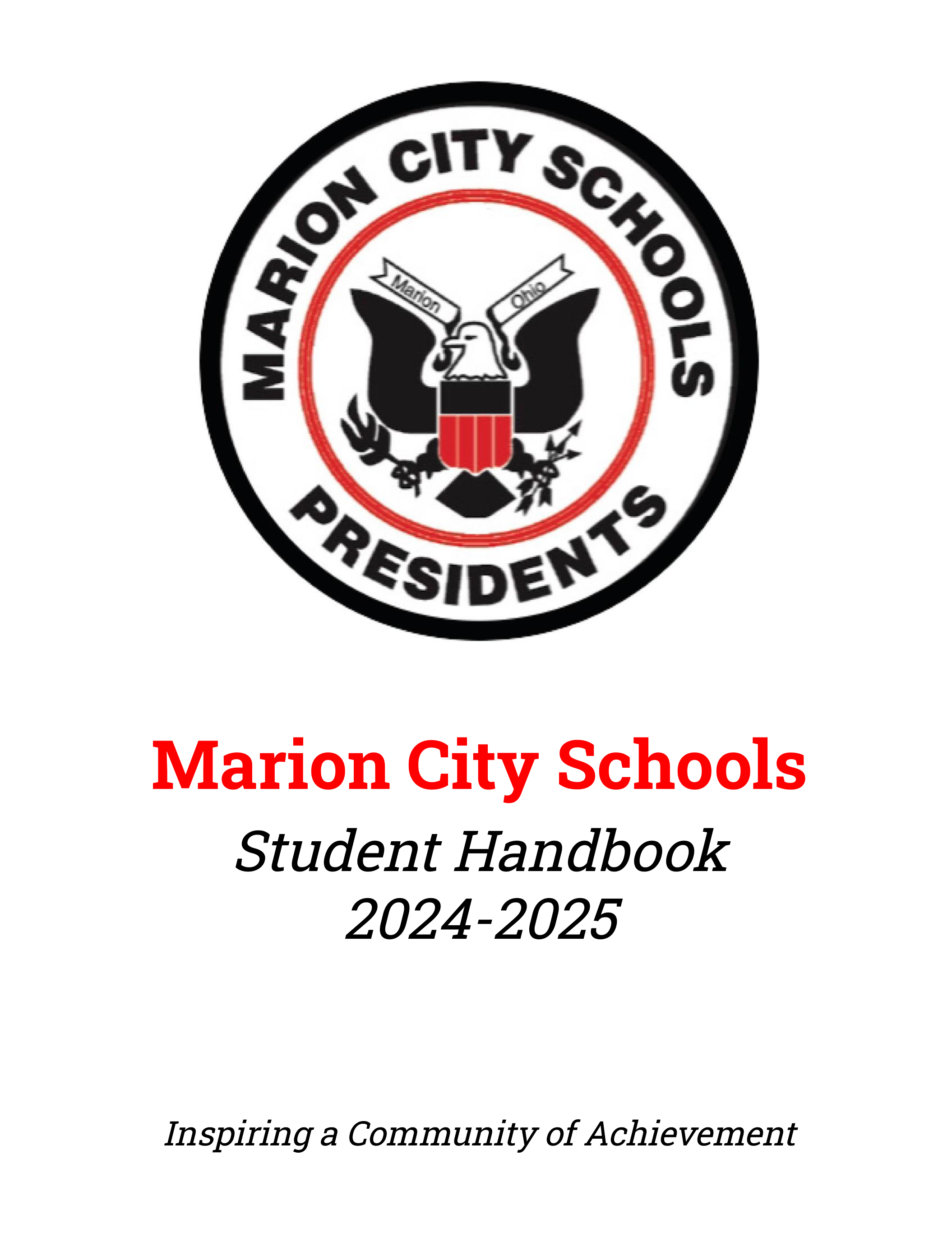Ohio High School Student Handbook
Welcome to Ohio High School Student Handbook This manual is designed to provide students mothers and fathers with important information approximately our college’s rules, procedures, and expectations. We believe that the clear expertise of those guidelines will help create a positive and effective studying environment for all.
2. Mission Statement – Ohio High School Student Handbook

Our undertaking is to foster secure, inclusive, and academically tough surroundings in which students can achieve their full capacity. We are devoted to getting ready students for achievement in university, careers, and lifestyles.
3. General Information
School Hours
Our school operates from 8:00 AM to 3:00 PM, Monday to Friday. Students are expected to arrive on time and be organized for the day’s sports.
Contact Information
Address: 123 Main Street, Ohio City, OH 12345
Phone: (123) 456-7890
Email: information@ohiohighschool.Edu
4. Academic Policies
Grading System
Grades are assigned primarily based on a mixture of homework, classwork, assessments, and participation. The grading scale is as follows:
A: 90-100%
B: 80-89%
C: 70-79%
D: 60-69%
F: Below 60%
1. Key Policies in Ohio High School Handbooks
| Policy Area | Description |
|---|---|
| Attendance Policy | Outlines requirements for student attendance and consequences for absences. |
| Dress Code | Specifies acceptable attire for students to maintain a conducive learning environment. |
| Discipline Policy | Details the disciplinary actions for various infractions, including zero tolerance policies. |
| Bullying and Harassment | Defines bullying and harassment, including procedures for reporting incidents. |
| Substance Abuse Policy | Addresses the use of drugs and alcohol on school property and during school events. |
2. Student Rights and Responsibilities
| Rights | Responsibilities |
|---|---|
| Right to Education | Students have the right to free public education without discrimination. |
| Right to Privacy | Students are entitled to privacy in their personal belongings and communications. |
| Responsibility to Respect Others | Students must treat peers and staff with respect and dignity. |
| Responsibility for Conduct | Students are responsible for their behavior and must adhere to school rules. |
| Right to Express Opinions | Students can express their views in a respectful manner within school guidelines. |
3. Conduct Expectations
| Expectation | Description |
|---|---|
| Classroom Behavior | Students must follow classroom rules set by teachers to maintain order. |
| Respect for Property | Students are expected to respect school property and report any damage. |
| Participation in Activities | Active participation in school activities is encouraged for personal growth. |
| Adherence to Safety Protocols | Compliance with safety drills and emergency procedures is mandatory. |
| Use of Technology | Guidelines for appropriate use of technology during school hours are enforced. |
4. Academic Requirements
| Requirement Type | Description |
|---|---|
| Course Credits | Minimum number of credits required for graduation, including core subjects. |
| Standardized Testing | Information on state assessments and their impact on graduation eligibility. |
| Homework Policy | Expectations regarding homework completion and submission timelines. |
| Grade Reporting | Frequency and method of grade reporting to students and parents. |
| Academic Integrity Policy | Rules against cheating and plagiarism, along with consequences for violations. |
5. Resources Available to Students
| Resource Type | Description |
|---|---|
| Counseling Services | Access to mental health support and academic counseling services. |
| Tutoring Programs | Availability of peer tutoring and academic support programs after school hours. |
| Extracurricular Activities | Information on clubs, sports, and other activities available to students. |
| Health Services | On-site health services for physical well-being and health education resources. |
| Parent-Teacher Associations (PTA) | Opportunities for parental involvement in school activities and decision-making. |
Homework Policy
Homework is an essential part of the mastering method. Students are predicted to complete assignments on time. Late submissions might also result in a discounted grade.
Academic Integrity
Academic honesty is critical. Cheating, plagiarism, and different kinds of academic dishonesty are strictly prohibited and could bring about disciplinary motion.
5. Attendance Policies
Attendance Requirements
Regular attendance is vital for educational achievement. Students are required to wait all scheduled lessons until excused for a legitimate purpose.
Tardiness
Students have to be in their school rooms through the begin of the school day. Repeated tardiness will bring about disciplinary measures.
Absence Procedures
Parents should notify the faculty of a student’s absence with the aid of calling the main office. A written note explaining the motive for the absence is needed upon the scholar’s return.
6. Code of Conduct
Behavioral Expectations
Students are expected to behave respectfully toward friends, personnel, and school assets. Disruptive behavior will now not be tolerated.
Dress Code
Students need to adhere to the faculty’s dress code, which promotes a secure and respectful knowledge of their surroundings. Inappropriate apparel consists of clothing with offensive language or imagery.
Bullying and Harassment
Bullying and harassment are strictly prohibited. Students who have interaction in such conduct will face critical effects, such as suspension or expulsion.
7. Extracurricular Activities
Sports Programs
We offer loads of sports programs, such as basketball, football, and track and area. Participation calls for preserving good academic status.
Clubs and Organizations
Students are encouraged to join golf equipment and groups that hobby them. These sports offer possibilities for private increase and network involvement.
8. Health and Safety
Health Services
Our school presents fitness services, including a nurse on the body of workers to cope with medical needs. Students should have updated fitness information on the report.
Emergency Procedures
In case of an emergency, students ought to observe the commands of the school body of workers. Regular drills are performed to ensure certain preparedness.
9. Technology Use
Acceptable Use Policy
Students must use the school era responsibly. Unauthorized right of entry to systems, cyberbullying, and different misuse of the era are prohibited.
Internet Safety
Students have to exercise safe net use, which includes not sharing personal facts online and reporting any suspicious pastime to a trainer or administrator.
10. Parent and Student Resources
Counseling Services
Our counseling branch offers help for academic, private, and professional-associated problems. Students are endorsed to are trying to find help whilst needed.
Academic Support
Tutoring and different academic support services are available to assist students to be successful. Information on these resources may be obtained from the main office.
FAQs
What statistics is generally determined in a scholarly guide?
Policies: Guidelines on academic requirements, grading, and homework.
Codes of Conduct: Expected pupil behavior, get dressed code, and anti-bullying guidelines.
Attendance Rules: Requirements for attendance, strategies for absences, and tardiness.
Student Rights: Information on pupil rights and obligations.
How can students get the right of entry to their faculty’s guide?
Handbooks are normally available:
Online: On the faculty’s reputable website.
School Offices: Physical copies can be obtained from the primary office or scholar offerings.
What are the effects of violating manual rules?
Consequences can also encompass:
Warnings: Verbal or written warnings for minor infractions.
Detentions: Time spent after college or at some point of lunch as a penalty.
Suspensions: Temporary elimination from college for severe violations.
Are handbooks up to date often?
Yes, handbooks are commonly revised annually to reflect modern-day guidelines and any adjustments in college regulations.
Who needs to students touch with questions about the manual?
Students must reach out to,
Principal: The faculty predominant or head administrator.
Designated School Staff: Specific group of workers contributors assigned to handle scholar inquiries, often indexed within the handbook itself.
Visit NewsDucationInfo For More Information.


